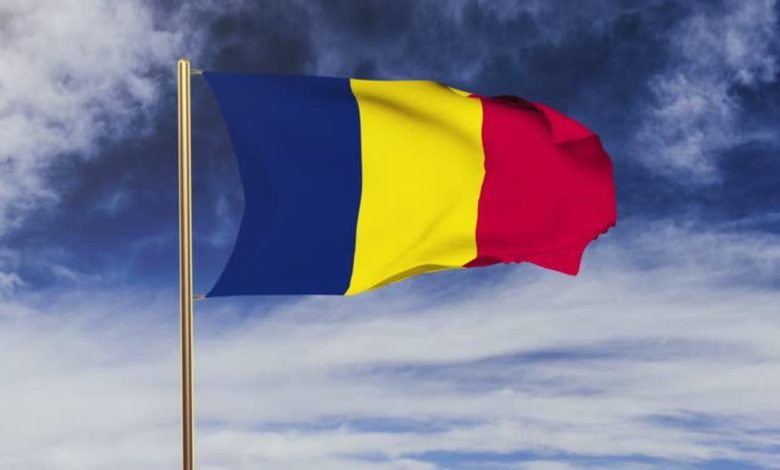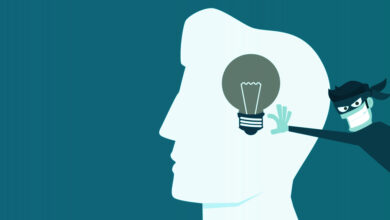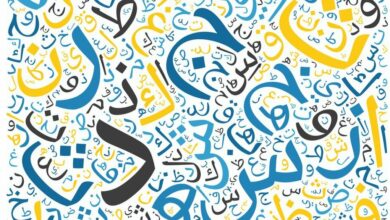The security vacuum in Chad and its repercussions on the African coast

Prepared by the researcher : Nour Tariq Jamal Al-Din – Master’s researcher at the Faculty of African Studies, Cairo University
Democratic Arab Center
The Chadian authorities announced the killing of its president, Idriss Deby, on April 20, 2021, at the hands of armed groups, a few hours after announcing his victory in a sixth term. Deby has been ruling the country for more than thirty years, which marked the beginning of a transitional period. It is run by the Transitional Military Council, headed by his son, “Mohamed Idriss Deby.”
After witnessing the increasing state of conflict and internal violence within Chad, which is located in the center of the African continent in the Sahel region, and ended with the death of President “Idriss Deby”, from injuries he sustained during his battle with the rebels, two days after announcing his victory in the elections, and obtaining 79% of the votes. Total votes, and “Deby” had seized the reins of power in 1990 with a military coup, which became a strong partner for Washington and Europe in combating terrorism and extremist groups in the African Sahel region.
The fall of the Idriss Deby regime
The Chadian President “Deby the Elder” had himself participated in the front lines to confront the rebels on the front line, which lies several kilometers from the north of the capital, and this is not the first time for the Chadian President to personally participate in the war against the rebels.
The rebels belong to the Change and Reconciliation Front, which was founded in 2016 by former Chadian army officers, as the Al-Wefaq group had previously accused the Chadian president of oppression, and the front took advantage of the turmoil in the capital, N’Djamena, during the presidential election period, and launched an armed attack, and gradually advanced To the south in the Chadian capital.
As a result of the power vacuum, the Chadian army announced the appointment of “Mohamed Idriss Deby,” the son of the late president, as head of the Interim Military Council for a period of 18 months. A.M.
As a result of these events and the escalation of armed violence between the Chadian army and the rebels, demonstrations took place inside Chad to denounce the assumption of power by the military council led by “Deby the Son” after the killing of his father. With the police, a number of demonstrators were arrested, and according to United Nations estimates, more than 700 people were arrested inside Chad following demonstrations against the Transitional Military Council.
The Military Transitional Council had announced the formation of a transitional government headed by “Albert Bahimi Badak” as Prime Minister, and some opponents were offered to take over some ministries for whom this was rejected, given that this gives the old “Debbie” regime continuity, which they sought to eliminate.
The Chadian opposition had denounced the “Deby the Son” to seize power and reject the government, as it described the power as a coup, and the opposition demanded that the military leave power, hold elections and form a civilian government.
While the Chadian opposition and leader of the National Union for Development and Renewal Party, “Saleh Kabzabo”, welcomed the government and the recognition of the military council, despite being the most prominent opponent of President “Deby the Father”. General of the Council of Ministers, while the Ministry of Justice went to Muhammad Salih al-Habbo, head of the Freedom and Development Party. Despite this, the ruling party still maintains the sovereign ministries in the government.
France had announced its welcome to the formation of a new transitional government in Chad, but its position towards Chad was inconsistent, as its position changed suddenly during the past few days from its support for the Military Transitional Council, to its call for the formation of a transitional government, and the holding of early presidential elections, and the coming period may witness Sudden changes in the French position, after the visit held by French President “Macron” to attend the funeral of “Deby the Father”, and France had taken N’Djamena as a center for operations, with the aim of combating terrorism in the African Sahel region.
French President “Macron” was the only Western president to attend President Deby’s funeral, and about 12 heads of state also participated in it, most notably the leaders of the countries of the African Sahel region, and the head of the Sudanese Sovereignty Council, Lieutenant General Abdel Fattah Al-Burhan.
parties to the conflict in Chad
There are also several parties that may shape the future of Chad in the short term, other than the Transitional Council led by “Deby the Younger”, the most important of which is the “Zaghawa” group, which is the group to which “Deby” belongs, most of which dominate the sovereign apparatus inside Chad, and may represent the rise of ” Deby, the son of power, is concerned about the Zaghawa, which has always been a source of opposition, as a result of Deby’s favoritism towards his first-degree relatives and granting them high positions, which angered the rest of the Zaghawa.
The armed group “Fact” is one of the most prominent actors in shaping the future of Chad after the killing of “Deby”; This group is stationed 150 km from the capital, N’Djamena, and the country’s future depends on its willingness to complete the fight for control of power from the hands of “Deby the Younger”, in light of the Turkish and Qatari support for the rebels in Chad, especially the “Fact” group.
Also, in the event that the pace of conflicts in Chad continues to escalate, extremist Islamic groups can seize the opportunity to destabilize Chad, in light of the tensions taking place in the Sahel region, and specifically the state of Chad, which was a center for confronting armed movements and organizations, as in light of the current conditions, it may not have Chad is unable to confront such organizations due to its preoccupation with confronting extremist groups in the country.
The African Union had sent a mission to N’Djamena to hold discussions with various actors, and to bridge views between the government and the opposition. The mission had several complex discussions and consultations, and the mission left on May 5, 2021.
The International Organization of La Francophonie had announced the appointment of the former Mauritanian diplomat, “Ahmadou Ould Abdallah”, as the organization’s envoy to Chad in order to monitor the recent situation inside Chad, and the Mauritanian Ministry of Foreign Affairs had praised the appointment of the prominent Mauritanian diplomat to the organization, and an official delegation from the organization is expected to leave for talks Multilateralism in Benjamin with the transitional authority and the opposition, and some civil society organizations to bring together points of view regarding the existing dispute, and will witness the participation of the African Union and the ECOWAS group, to achieve a peaceful uprising and end the tension between them.
The French position on the developments in Chad
France was at the forefront of countries that commented on the killing of Chadian President “Idriss Deby”, and offered condolences to the Chadian people, describing him as a “courageous friend”. The importance of holding a dialogue with all political parties and civil society, and forming a government that includes everyone and relies on civil institutions.
It is worth noting that France is considered the first foreign power in the Sahel region, and it is the one that plays the most important role in combating terrorism, and has always viewed “Deby the Father” as an ally. As Chad used to actively participate with its forces within the framework of the joint military force of the G5 Sahel countries, in order to combat terrorist organizations in the Sahel region (which includes Chad, Niger, Mali, Burkina Faso, and Mauritania), which is one of the African regions with the highest levels of violence and terrorism. With the exception of Mauritania, which is considered among the most stable countries in the world.
It is likely that French support for “Deby Jr.” will continue, similar to its support for his father, in line with its security interests in the region, in return for Chad’s resumption of involvement in counter-terrorism efforts after “Deby Jr.” secured his control over the country’s territories, and his victory in his battle against the rebels.
It is not in France’s interest to express its opposition to the Transitional Military Council at the present time, because the council headed by “Deby Jr.” is fighting on more than one front. First, he fights transnational terrorist organizations, as well as the Front for Change and Accord and its armed arms, as well as the “Zaghawa” ethnicity, to which the late Chadian president belonged, and it dominated the security and intelligence services throughout his rule, and despite the “Zaghawa” loyalty to the “Deby” regime, they are always It was a source of opposition as a result of “Debbie” favoring his first-degree relatives, and granting them high positions, which angered the rest of his ethnicity.
The repercussions of the French withdrawal from the African coast
The French government took the step of announcing the reorganization of its military presence in the African Sahel region on June 10, 2021, and this comes within the framework of its fear of worsening conditions in the Sahel, which would greatly affect its interests, and accordingly, the French Ministry of Armies issued a decision to move towards reducing the number of soldiers. The French in the African Sahel region, to reach the number (2,000 to 3,000 soldiers by 2023), while stressing that this measure does not mean a complete French withdrawal from the African Sahel, and the plan includes three basic stages, the first of which is the closure of some French bases, the second stage By the summer of 2022, the French forces will be reduced by 30%. As for the last stage, which begins at the beginning of 2023, it will witness a halving from 5,000 to 2,500-3,000 soldiers in the “Barkhane” operation, and the transfer of more French assets to the “Niamey” base in Niger.
These steps may lead to the actual disappearance of the French military presence with the end of Operation Barkhane, and it is possible to say that France is not ready to withdraw completely from Africa (the traditional colony), and perhaps the evidence for this is the attempt to reformulate the military presence in Africa through a European umbrella represented in The “Takoya” coalition, which was established in July 2020, and its main force consists of 600 soldiers. The number of participants from France is 300 soldiers, half of the “Takoya” force, which is collaborative forces in cooperation between (France-Estonia-Czech-Italy-Sweden), which seeks from Through this alliance to support the plans of countries in eliminating terrorism, support the national armies of countries in light of the limited capabilities and the high threat and danger.
Also, the French withdrawal from the African coast may lead to:
The increasing Chinese influence in the region
Beijing has diversified its tools within the African region, according to the diversity of the mechanisms of the Chinese presence and the lack of reliance on the military and development side, which gave it strong influence within the African region, especially in light of the trend of the French presence towards shrinking and its withdrawal from several areas in Mali, with the change of the US administration’s policies. With regard to Africa, which is no longer at the top of its priorities at the present time, it is expected that these developments will contribute to building a Chinese strategy within the continent, in light of the absence of anything that hinders Chinese growth in the region.
The entanglement of Sino-Russian relations in Africa
Focusing on Chinese policy towards Africa, which has diversified its tools to enhance its internal influence on the continent, with Russian efforts to deepen relations with African countries, especially the countries of the African Sahel, and its ambition to replace France after its withdrawal from several regions in Mali, although China is in In 2019, it ranked third in arms sales to Africa, after the “second” Washington and “first” Moscow. However, the Russian-Chinese presence in Africa may constitute a deepening of relations between them, especially after the European Union imposed a package of sanctions on a number of “Wagner” elements, With the increasing role of Russian private security companies, it is likely that the African region will witness the integration of Chinese-Russian interests in the face of American-European influence, as happened in Afghanistan. China and Russia were the first countries to recognize the government of the “Taliban” movement in Afghanistan, and my country’s embassy is still China and Moscow in Afghanistan are among the 5 embassies operating after the Taliban took control of the reins of power in Afghanistan.
In southern Libya, mercenaries from Chad are active, in view of the phenomenon of “interdependence”; Terrorist organizations and transnational organized crime networks, such as trafficking in people, weapons, drugs, and others, establish relations of cooperation and dependence between them, which contribute to the deterioration of the Libyan security scene, as well as in Sudan, especially in light of the exacerbation of tribal violence in Sudan and Sudan’s fight on the eastern front (the Al-Fashqa Triangle) against Ethiopia.
In addition, some reports indicate that the armed faction “Fact” has received support from both Turkey and Qatar. This is because Ankara wants to border French influence in the African Sahel region. In this context, the issue of Chad and the Turkish position in support of the state of instability there and the financing of “Fact” can be raised at the top of the files that the Egyptian and Turkish sides will discuss in the coming days as a prelude to reconciliation.
Chad’s tangled international relations
Chad established a strong partnership with the UAE, and developed its historically tense relationship with Israel, and during the period from 2015 to 2019, bilateral trade ties between Chad and the UAE expanded from $177 million to $412 million, which dwarfs the Turkish trade volume of about $72.4 million. In 2019, the UAE Minister of Economy, “Sultan bin Saeed Al Mansouri”, delivered a speech in September 2017 to the UAE-Chadian Business Forum, in Abu Dhabi, and identified Chad as a target country for UAE investments in Africa.
Chad also participated in the Saudi-led blockade against Qatar, in June 2017, and Doha was accused of supporting the rebels in Chad, and of embracing the leader of the Rally for Democratic Forces, “Timan Erdimi.” The Qatari Foreign Minister, Sheikh “Mohammed bin Abdul Rahman Al Thani,” responded to the Chadian claim, that The UAE-Chadian Business Forum was a reward for Chad’s support for the blockade, and Chad restored diplomatic relations with Qatar, in February 2018. Nevertheless, Idriss Deby’s solidarity with the so-called Counter-Terrorism Quartet (ATQ) was positively noted in Abu Dhabi.
Chadian military support for the leader of the Libyan National Army, Khalifa Haftar, strengthened its partnership with the UAE. In December 2019, the UAE recruited 200 fighters linked to the Chadian rotation and reconciliation movement, and in June 2020, it was also reported that Chad allowed the deployment of 1,500 additional soldiers to fight in the ranks of the Libyan National Army. Chadian forces in Libya come from a variety of ideological backgrounds, as the rebel movement “FACT” also has a non-aggression pact with Haftar, and an escalation of political violence in Chad could lead these forces to return home or create a split among the ranks of Chadian mercenaries in Libya, which could lead This may weaken the foundations of the UAE’s influence in eastern Libya.
Although there were no diplomatic relations between Chad and Israel from 1972 until 2019, relations between the two countries improved during the past two years of the rule of “Idriss Deby”, and this was reflected in the recent statements of the Israeli Prime Minister “Benjamin Netanyahu”, in which he described Déby’s leadership is bold. During his visit to N’Djamena in January 2019, Netanyahu described Chad as a partner, and struck a series of business deals with Déby. In August 2019, a delegation of Israeli government officials traveled to Chad to talk about agricultural and mining cooperation. Chad and Israel have discussed a diplomatic exchange, and “Deby Jr.” will likely continue his father’s involvement with Israel, despite Chadian civil society’s espouse of anti-Israel sentiment. Therefore, Israel will seek to preserve the political status quo in Chad, and Israel will likely find the democratization sought by the Fact rebel group desirable.
Despite the Turkish expansion in Africa, especially after the tour that “Recep Tayyip Erdogan” made to the African continent in 2005, the Turkish-Chadian partnership was formed during the Cold War period, and the common hatred of the two countries for communism helped strengthen ties, despite the Libyan aid to Turkey during the invasion of Cyprus, in 1974, provided Libyan President Muammar Gaddafi with spare parts for the Turkish army during the invasion of Cyprus, but the Turkish side made clear its position of non-alignment during the Chadian-Libyan war 1978: 1987, and Chad relied on aid from Arab countries, such as Egypt and Iraq, However, Turkey forged ties with the Idriss Deby regime by providing humanitarian aid to Chad during the drought of the early 1990s.
After nearly a quarter of a century of relative calm in relations, Erdogan’s historic visit to N’Djamena, in December 2017, strengthened Turkish-Chadian relations and opened new horizons. Erdogan also encouraged Turkish companies to invest in the Chadian economy, and stressed that Turkey is seeking to Fruitful cooperation with Chad, and Ankara considered the Chadian reserves of gold and agricultural markets an attractive investment destination, but its “locked-in” location and poor infrastructure may pose difficulties for potential Turkish investments, and Ankara highlighted that Turkey considers Chad a long-term economic partner in the western region. Africa, and also announced its commitment to N’Djamena by sending two shipments of medical aid for the Corona virus, on May 22 and June 18 last year.
Prospects and dangers that have been plaguing Chad lately.
While the state of uncertainty that Chad suffers from as a result of instability continues, and it seeks to avoid acts of violence, the internal situation remains unstable as a result of delaying the peaceful transition of power that the Chadian opposition as well as the international and regional community demands, many risks and challenges loom on the horizon. Many Chadians fear that the military council will not fulfill its pledges to limit the period of peaceful transition to eighteen months and exclude its members from running in the presidential elections, and the “Fact” rebel group in Libya is still active despite the efforts of the Transitional Military Council in N’Djamena to encircle the armed opposition. Preventing them from entering the country and launching armed attacks. Chad also suffers from ethnic divisions with politicians competing for power, as well as divisions within the tribes themselves, especially divisions within the “Ghazawa” tribe to which Chadian President Idriss Deby belongs.
Perhaps the most prominent challenges that Chad suffers from are the border problems with the Central African Republic, which attacked a group of its forces, with the support of the Russian special security forces “Wagner”, a position of the Chadian army, under the pretext of chasing the Central African rebels who crossed the Chadian border, and the incident led to an escalation of tensions between the two countries in Last August, Boko Haram killed more than 26 Chadian soldiers in Lake Chad, the highest death toll since the March 2020 attack in the same area, which killed nearly 100 soldiers, and launched a large-scale campaign to combat armed groups, as a result For these unfortunate events on Lake Chad, the commander of the Chadian Military Transitional Council, “Mohamed Deby,” withdrew half of the Chadian force from the G5 Sahel forces from the tri-border area between Mali, Niger and Burkina Faso, as part of the redeployment strategy of the Chadian forces.
In conclusion, the absence of Chadian President Idriss Deby represents a major challenge to the African Sahel region, given the importance Chad represents in the region. Where Chad is considered one of the largest countries that confront terrorist movements in the African region, and one of the largest countries contributing to the United Nations Mission in Mali, and in March 2020, Chad lost about 100 soldiers in a terrorist attack in Nigeria, which prompted “Deby” to threaten to withdraw his forces participating in the fight against terrorism. .
Also, the African Sahel has recently witnessed an unprecedented increase in violence and terrorism, and international and regional competition. It is also likely to face major security challenges as a result of the French withdrawal, with the entry of other parties to play a role in the conflict. The efforts of the African Sahel countries to contain the situation internally will not be done solely by relying on Domestic efforts and unification, but also depend on regional and international support from neighboring societies in order to reduce the level of violence and danger. Therefore, cooperation and blocs must be activated between the coastal countries and neighboring countries in order to gain the confidence and support of the international community.




